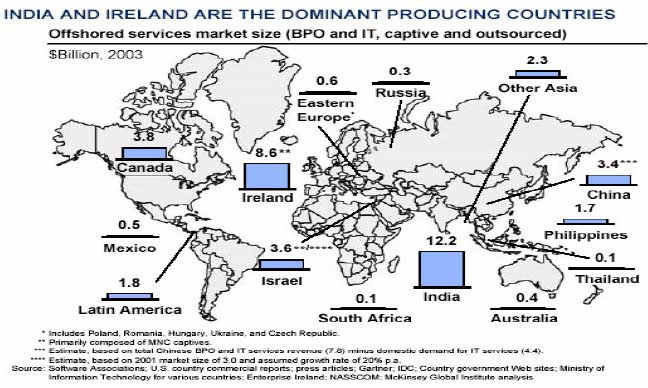The possibility of off shoring raises many questions, for example:
- Will the US and other developed nations lose jobs?
- Will corporations in the US and other developed nations become more profitable?
- Will the world become a more equitable, just place?
- What should be the government response to this trend?
- Is off shoring a significant portion of total services today?
- Is off shoring difficult to manage?
Resources
- An early article on offshoring of software services to India, Ireland and other nations.
- Pixel Corps is trying to train the next generation of offshore media developers.
- Interview of an outsource firm owner.
- Article analyzing the value added by organizations working on the Apple iPod.

Source: McKinsey and Company, The Emerging Global Market: Part II -- The supply of Offshore Talent in Services, June 2005.